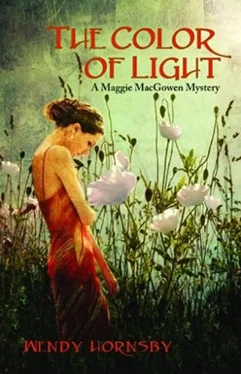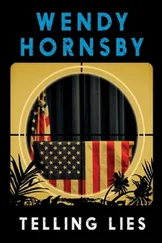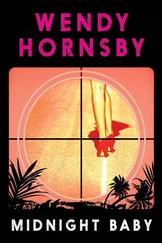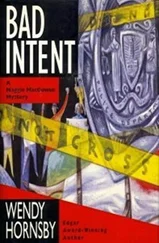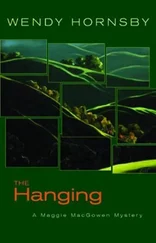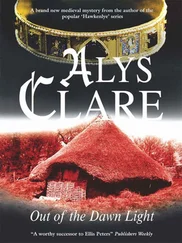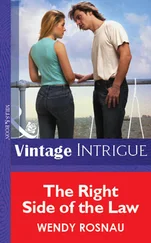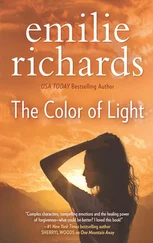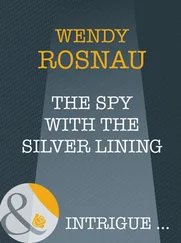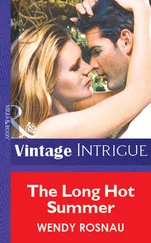“Or you could pick them all and take them home so Lyle can make his famous marinara sauce,” I said. “There should be enough to last you all winter.”
Lyle’s face collapsed. I thought he was going to cry.
“Now what?” I said, spoon poised above my bowl.
“You’re leaving me again, aren’t you?”
“Where’d you get that idea?”
“The dopey look on your face.”
“For heaven’s sake.” I reached around for a box of tissues and handed it to him. “Get a grip.”
“Lyle,” Jean-Paul said, catching his eye. “Have you ever visited France? You will love it.”
I thought it was time to shift to a new topic. I turned to Uncle Max and asked, “Why would Dad keep Mark’s Purple Heart in his workbench?”
Max considered the question for a moment before he offered, “He loved to putter in the garage and your mom never went out there. Maybe he wanted to put it somewhere Betsy wouldn’t happen upon it and get upset. Or, maybe he wanted to keep it where he could take it out and look at it from time to time privately. You know, keep it close.”
“‘Al’s out in the garage making sawdust,’ Betsy always said.” Lyle was smiling again.
“So she did.” I ate my soup, thinking about Mom moving into the noisy, happy sphere of the Tejeda family. A good move, I thought as I returned Lyle’s smile. A very good move.
Jean-Paul cleared his throat. I looked over at him, expecting him to say something, but after glancing from me to Max, he didn’t.
“Yes?” I said.
He considered for a moment before he retrieved the medal box from the counter where he set it when we came inside for lunch.
“I was curious,” he said, unpinning the medal from the velvet lining it was attached to. “I had never seen a Purple Heart before.”
He laid the medal on my palm, and holding my hand in his, he turned the medal over and showed me the back. Below FOR NATIONAL MERIT the recipient’s name was engraved.
“Max,” I said, handing it to him. “This isn’t Mark’s Purple Heart. It’s Dad’s.”
“I’ll be damned,” he said, running a finger over the letters. “I forgot he earned one.”
“Korea,” I explained to the others. “Dad took shrapnel in his shoulder, his leg and his butt.”
“Because of Korea, my brother Al didn’t want Mark to go to Vietnam,” Max said. “He thought he had gone to war so that his son wouldn’t have to.”
Max pinned the medal back into its box. He took a last look before he closed the lid. Holding the box against his chest, he appealed to me: “May I?”
“Of course,” I said. He slipped the medal into his shirt pocket and finished his soup.
After lunch, Jean-Paul and I left the others bent to their tasks and drove off with the load for the waste station-the toxic dump-in Martinez. I brought along the three boxes of slides I had found that Dad shot around the time that Mrs. B died. As Jean-Paul drove, I took them out one at a time and held them up to the light through the windshield.
“What are you looking for?” he asked.
“Whatever I can find.” I dropped yet another picture of a perfect rose back into its box and took out another. Roses, roses, me, Mom, me again, me holding a rose. I was nearly to the end of the last box, dated the month after Mrs. Bartolini was murdered, thinking that there was nothing to see. At least, nothing useful. I pulled out the last two frames and held them up side by side.
“What did you say?” Jean-Paul asked.
“Did I say something?” I shrugged: had I? “Eureka, maybe?”
“No. I think it was, ‘When is a rose not a rose?’”
“The answer is, When it’s a man.” I handed him the last slide from the box. The previous frame showed Mr. Sato holding a deep red Chrysler rose by the stem in one hand and the neck of a beer bottle in the other. There was a man standing beside him, but Dad, interested in the rose, had cut him off so that all I could see was a hand with short, brown, calloused fingers wrapped around a beer bottle. The next frame, the last frame, was a risk shot taken after the thirty-sixth picture on a thirty-six-picture roll. There was only half a frame of film left before the beginning of the black trailer that wound the film on the spool. But that half frame was enough. Dad had captured the face of the man standing next to Mr. Sato. He wore a gardener’s wide straw hat and a wide smile. And I had never seen him before.
“Do you like flowers?” I asked Jean-Paul.
“Of course.” He gave the slide a quick look before handing it back. “Why?”
“After we dump our load, I thought maybe we could go see some flowers.”
“Is there time before the Hungry Ghosts party?”
“The party goes on all day and most of the night, so we can show up at any time,” I said. “The ghosts will still be there when we get there. They always are.”
I heard Jean-Paul’s sudden intake of breath when we turned onto the access road to Mr. Sato’s greenhouse. In front of us, spread across flat fields almost as far as the eye could see, an ocean of flowers in full bloom, their colors more vivid than film could ever capture. The perfume in the air was nearly overwhelming.
At one time, this area south of San Jose was covered by flower nurseries. But over the years, piece by piece, the land had been sold to developers who replaced the nurseries with stucco housing tracts and boxy gray industrial parks and shopping centers. But nestled among warehouses and cinderblock fences, an oasis of commercial nurseries had managed to survive.
Mr. Sato, perched on a canvas director’s chair in the shade of his greenhouse, was surveying what remained of his once-vast patch of roses through binoculars. When he heard the crunch of gravel under our truck tires, he turned the binoculars on us. Slowly, he got to his feet and directed Jean-Paul where to park.
“Hey Maggie, you come to see my roses?”
“They’re amazing,” I said, shaking his hand. “But we came to see you.”
Introductions made, he offered us shade, chairs, and beer, in that order. We gladly accepted all three; it was at least twenty degrees hotter south of San Jose than it was in Berkeley.
After some preliminary chitchat, I took out the two slides that had parts of the man I did not recognize and asked Mr. Sato to look at them.
“Sure, sure,” he said, slipping his reading glasses back into his pocket and handing the slides back to me. “That’s Duc.”
“Duck?”
He spelled the name for me. “Vietnamese guy. Duc Khanh.”
“Did he work with you?”
“Yep.” He rocked forward. “Worked for me a couple years. Best helper I ever had. I was real sorry when he quit.”
“I think this picture was taken around the time that Mrs. Bartolini died.”
He reached for the slides again and held them both up to the light, the effort to remember apparent in his frown. After a moment, he nodded.
“Yep, I think you’re right,” he said. “The other day you asked me about my helper back then but I couldn’t quite pin it down, you know? But now I see this-” He flicked the corner of a slide frame. “That’s the good thumping my rusty old brain needed. Yeah, Duc was working with me then.”
He took another look at the slides. “Chryslers, you know, after they flower in the summer they have a short bloom again in the fall. That year, though, this rose just kept going till Christmas. Not a few pissy little late roses, but big, beautiful ones. So red they were almost black on the ends. And the perfume. Jeez, knock you out. Soon as that one went dormant, me and Duc pruned it and took cuttings.”
I had to smile. My dad would sequence events by the way his roses performed during a particular year, or the stages of their bloom when something happened. Like Dad, Mr. Sato would remember the roses that year more clearly than he would lurking strangers.
Читать дальше
